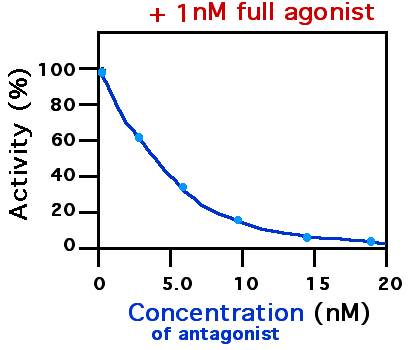|
PD-0298029
PD-0298029 is a drug which acts as a selective antagonist for the muscarinic acetylcholine receptor M4. It was developed for the treatment of Parkinson's disease, but poor bioavailability and rapid metabolism in animal studies have meant its use is largely limited to ''in vitro'' research into the M4 and other muscarinic receptors.Progress in Medicinal Chemistry 43. (2005). Chapter 4, Muscarinic Receptor Subtype Pharmacology and Physiology, by Richard M Eglen. pp 128-129. See also * PD-102,807 PD-102,807 is a drug which acts as a selective antagonist for the muscarinic acetylcholine receptor M4. It is used in scientific research for studying the effects of the different muscarinic receptor subtypes in the body and brain. See also * P ... References Parkinson's disease Muscarinic antagonists {{nervous-system-drug-stub ... [...More Info...] [...Related Items...] OR: [Wikipedia] [Google] [Baidu] |
Muscarinic Acetylcholine Receptor M4
The muscarinic acetylcholine receptor M4, also known as the cholinergic receptor, muscarinic 4 (CHRM4), is a protein that, in humans, is encoded by the ''CHRM4'' gene. Function M4 muscarinic receptors are coupled to Gi/o heterotrimeric proteins. They function as inhibitory autoreceptors for acetylcholine. Activation of M4 receptors inhibits acetylcholine release in the striatum. The M2 subtype of acetylcholine receptor functions similarly as an inhibitory autoreceptor to acetylcholine release, albeit functioning actively primarily in the hippocampus and cerebral cortex. Muscarinic acetylcholine receptors possess a regulatory effect on dopaminergic neurotransmission. Activation of M4 receptors in the striatum inhibit D1-induced locomotor stimulation in mice. M4 receptor-deficient mice exhibit increased locomotor simulation in response to D1 agonists, amphetamine and cocaine. Neurotransmission in the striatum influences extrapyramidal motor control, thus alterations in M4 ac ... [...More Info...] [...Related Items...] OR: [Wikipedia] [Google] [Baidu] |
PD-102,807
PD-102,807 is a drug which acts as a selective antagonist for the muscarinic acetylcholine receptor M4. It is used in scientific research for studying the effects of the different muscarinic receptor subtypes in the body and brain. See also * PD-0298029 PD-0298029 is a drug which acts as a selective antagonist for the muscarinic acetylcholine receptor M4. It was developed for the treatment of Parkinson's disease, but poor bioavailability and rapid metabolism in animal studies have meant its use ... References {{Muscarinic acetylcholine receptor modulators Muscarinic antagonists ... [...More Info...] [...Related Items...] OR: [Wikipedia] [Google] [Baidu] |
Antagonist (pharmacology)
A receptor antagonist is a type of receptor ligand or drug that blocks or dampens a biological response by binding to and blocking a receptor rather than activating it like an agonist. Antagonist drugs interfere in the natural operation of receptor proteins.Pharmacology Guide: In vitro pharmacology: concentration-response curves " '' GlaxoWellcome.'' Retrieved on December 6, 2007. They are sometimes called blockers; examples include alpha blockers, |
Parkinson's Disease
Parkinson's disease (PD), or simply Parkinson's, is a long-term degenerative disorder of the central nervous system that mainly affects the motor system. The symptoms usually emerge slowly, and as the disease worsens, non-motor symptoms become more common. The most obvious early symptoms are tremor, rigidity, slowness of movement, and difficulty with walking. Cognitive and behavioral problems may also occur with depression, anxiety, and apathy occurring in many people with PD. Parkinson's disease dementia becomes common in the advanced stages of the disease. Those with Parkinson's can also have problems with their sleep and sensory systems. The motor symptoms of the disease result from the death of cells in the substantia nigra, a region of the midbrain, leading to a dopamine deficit. The cause of this cell death is poorly understood, but involves the build-up of misfolded proteins into Lewy bodies in the neurons. Collectively, the main motor symptoms are also known as ... [...More Info...] [...Related Items...] OR: [Wikipedia] [Google] [Baidu] |


